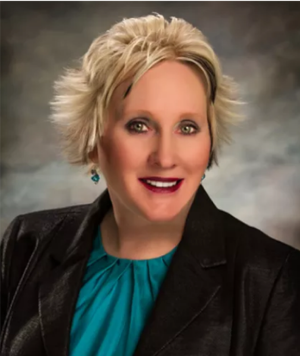Just when some adults think the acne years are behind them, new lesions start to appear long after adolescence. Adult acne can be a continuation of pubescent acne (called persistent acne) or it can appear for the first time in people in their 30s, 40s, and 50s (called late-onset acne).
Fortunately, acne is just as treatable in adults as it is in teens. Because the causes are so varied (in addition to hormones, family history, cosmetics, and certain medications may play a role), it’s helpful to work with a dermatologist to pinpoint what may be triggering the outbreaks. As with adolescents, the type of acne, location and severity will determine the treatment type.
What are the treatment options for adult acne?
As with adolescent and other forms of acne, most cases of adult acne can be treated successfully with a wide variety of medications. The type of treatment your dermatologist chooses will depend on the severity and type of acne, your sex, your skin type, and other factors.
Topical medications
A topical treatment is one that is applied directly to the skin and comes as a lotion, cream, gel, or ointment. For acne that doesn’t respond to over-the-counter medications, your dermatologist may prescribe something stronger, such as a topical retinoid. (Differin, Tazorac, Retin A Micro)
Topical retinoids have emerged as one of the most effective treatments for acne because they are believed to work at eliminating lesions at an early stage (called the microcomedone phase). They may be used alone or in combination with other medications. Long-term use of a topical retinoid may be recommended to maintain clear skin.
Oral medications
For adult acne related to hormones, some oral medications are used to even out hormonal swings, especially for women. Such medications include oral contraceptives (Yaz, Ortho Tri-Cyclen), hormone replacement therapy (HRT), and spironolactone (aldactone). HRT is not commonly used to treat acne in pre-menopausal women and should never be taken during pregnancy.
Your physician may also prescribe oral antibiotics, alone or with topical retinoids, to keep acne-promoting bacteria from building up.
For the most severe, unresponsive acne, dermatologists often prescribe oral isotretinoin (Accutane, Sotret). Isotretinoin is one of the most effective treatments for severe acne; its side effects can be serious, so patients using this treatment should work closely with their dermatologist to manage any potential issues.
What causes adult acne?
When excess sebum (the oily secretion that keeps our skin moisturized) builds up, it can block pores, which promotes the accumulation of dead skin cells and bacteria (p. acnes). This can occur at any age, and in adults, can be caused by the following:
- Hormonal activity. The main culprit in teen acne (when hormonal fluctuations are most active), hormones can also play a role in adult acne, especially for women. Hormonal fluctuations are common during menstruation, pregnancy, and menopause. Women who stop taking birth control pills might also get acne. Another hormonal factor is stress. Under stress, the body produces more androgens, which stimulate sebum production.
- Certain medications. Anticonvulsants, corticosteroids, and certain other drugs may cause acne as a side effect. Do not stop taking your medication if this happens. Instead, talk with your doctor to discuss alternatives or adjusting the dosage. Oral contraceptives containing both estrogen and progestins are sometimes used to prevent acne in women, but progestin-only birth control may actually worsen acne.
- Family history. If members of your immediate family (such as a sibling or parent) have acne, you may be predisposed to have acne too.
- Cosmetics. Oily lotions or hair product may promote acne. Choose products labeled “non-comedogenic” or “non-acnegenic.”
- Another health problem. Acne can signal an underlying medical condition, including polycystic ovaries or problems with the adrenal system.
What self-care and preventive measures can I take against adult acne?
- Clean skin gently. Use a mild skin cleanser twice a day, and pat skin dry. Harsh cleansers and astringents can actually worsen acne.
- Do not pop, squeeze, or pick at acne lesions, as this can promote inflammation and infection. Keep hands away from your face and other acne-prone parts of the skin.
- Avoid touching your face with your hands. Keep hands away from your face, and wash your hands often, in case you do touch your face.
- Limit sun exposure. Tanning only masks acne at best. At worst, sun exposure can lead to skin damage, especially if you are using an acne treatment that makes your skin more sensitive to sunlight and UV rays (this includes tanning booths).
- Choose cosmetics with care. As mentioned above, choose non-greasy skin products, and look for words like non-comedogenic and water-based.
- Be patient with your treatment. Find out how much time it should take for your acne treatment to work (generally 4-8 weeks), and then stick with it. Stopping treatment early may prevent you from seeing good results or even cause a relapse of symptoms.
Be sure to follow specific instructions given to you by your physician or health care professional.
